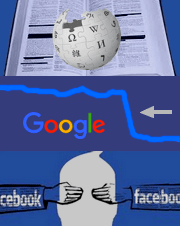Liczba wyświetleń: 973
On October 28, the next round of trilateral negotiations in the Ukraine-Russia-EU format on the transit of Russian gas to Europe will take place.
During the previous negotiations held in late September, the parties voiced their wishes. Moreover, in Ukraine and Russia they were fundamentally different.
The only completely transparent was the position of the European Union. It’s interests are that Europe needs long-term guarantees of stable supplies of cheap Russian gas. Short and clear. The simplest and most obvious decision to fulfill this condition is to conclude a long-term transit contract with Ukraine with the obligation of the Russian side to pump at least 60 billion cubic meters of gas through its pipeline. There is a second option. And even the third. It is possible to conclude contracts directly with Russia for gas supplies through the Turkish Stream and Nord Stream-2. At the same time, the cost will probably be cheaper, given the lack of tariffs for transit. Also the Russian side can be allowed to book the transit capacities of Ukraine. The fact is that, having implemented EU norms, Ukraine is obliged to put up its transit capacities for auction. Russian Gazprom will be able to buy them in the required volumes, which will allow deliveries to Europe without concluding a contract. But European investors are interested in investing in the Ukrainian gas transportation system. Therefore, the last two options for the EU are unacceptable, well, or at least undesirable.
Now for the positions of Russia and Ukraine. Both sides are similar to poker players and are bluffing to some extent. Both Moscow and Kiev need clarity on the gas issue, otherwise no negotiations would have simply taken place.
Let’s start with Russia, as the situation here is simpler. Moscow needs to ensure uninterrupted gas supplies to Europe. At the same time, after the final commissioning of the Northern and Turkish streams, the main burden will have to lie on them. Gazprom is also ready to use the Ukrainian gas transportation system, but in minimal volumes. Therefore, the conclusion of long-term contracts with Kiev for the Russian side is economically disadvantageous. This is the case if we consider Ukraine only as a transit side. At the same time, the leadership of the Russian Gazprom announced its readiness to consider the issue of a new contract under the conditions of settlement of judicial disputes and the conclusion of a package agreement that includes, in addition to the transit contract, an obligation to buy Russian gas in Kiev (with a 20% discount on the price according to European consumers). The option of booking through an auction of Ukrainian gas transit capacities is quite satisfactory to Russia.
Now about the position of Ukraine. Everything is much more complicated here and in order to take a confident negotiating position, a favorable combination of many circumstances is necessary. In previous negotiations, the Ukrainian side issued an impossible ultimatum to conclude a contract for 10-15 years with Moscow’s obligation to pump 90 billion cubic meters, which is even theoretically impossible when Russia uses the Turkish Stream and Nord Stream 2.
At the same time, Kiev announced that by the end of December it will fulfill all the EU criteria, i.e. will split the gas production and transit companies and prepare its capacities for booking through an auction. With this outcome, it is quite obvious that Ukraine will completely lose revenue from the transit of Russian gas. And this is up to 3-4% of the country’s GDP.
Regarding meeting the state’s needs for blue fuel, the head of Naftogaz of Ukraine Andriy Kobolev expressed confidence in the readiness of the country’s gas transmission system to receive 6.6 billion cubic meters of American gas per year, supplied under contracts through Poland. This would provide more than half the needs of Ukraine. The remaining volumes are still planned to be acquired by reverse from Europe.
In the interest of implementing this strategy in the summer, Kiev, Warsaw and Washington signed a tripartite memorandum on cooperation with a view to strengthening the regional security of natural gas supplies. The document involves the acquisition of American LNG through the Polish gas operator Gaz-Sistem. For this, it is necessary to carry out modernization of the gas pipeline, which previously allowed pumping no more than 1.5 billion cubic meters per year. To this end, Naftogaz began to modernize the gas pipeline and build the Komarno station to receive gas from the Polish Świnoujście.
And now about the weaknesses of this strategy. The Polish gas operator Gaz-Sistem said that the Ukrainian gas transmission system is not ready to receive the declared gas volumes. Currently, its maximum throughput is 2 billion cubic meters per year. And the cost of American gas is very significant. After regasification and pumping to Ukraine, it will be about $ 200 per thousand cubic meters.
It is worth noting that Naftogaz is experiencing clear funding problems. The financial position of Ukrtransgaz, which carries out reverse gas feeds from Europe, is no better. The company’s debt to European suppliers is about 145 million euros. The Secretary General of the European Federation of Energy Traders has warned that if the debt is not paid, there will be no reverse supply.
A loan from the IMF could be used to pay for American and European fuel, but according to the words of Prime Minister of Ukraine Alexey Goncharuk, a financing program will not be agreed in the near future.
The EU and Moscow have spare options and the failure of negotiations for them will be sad, but not critical. But for Ukraine, the consequences can become much more serious. A weak negotiating position and an unsuccessful bluff can become fatal for Kiev.
Authorship: Vitaliy Timoschuk
Source: WolneMedia.net











